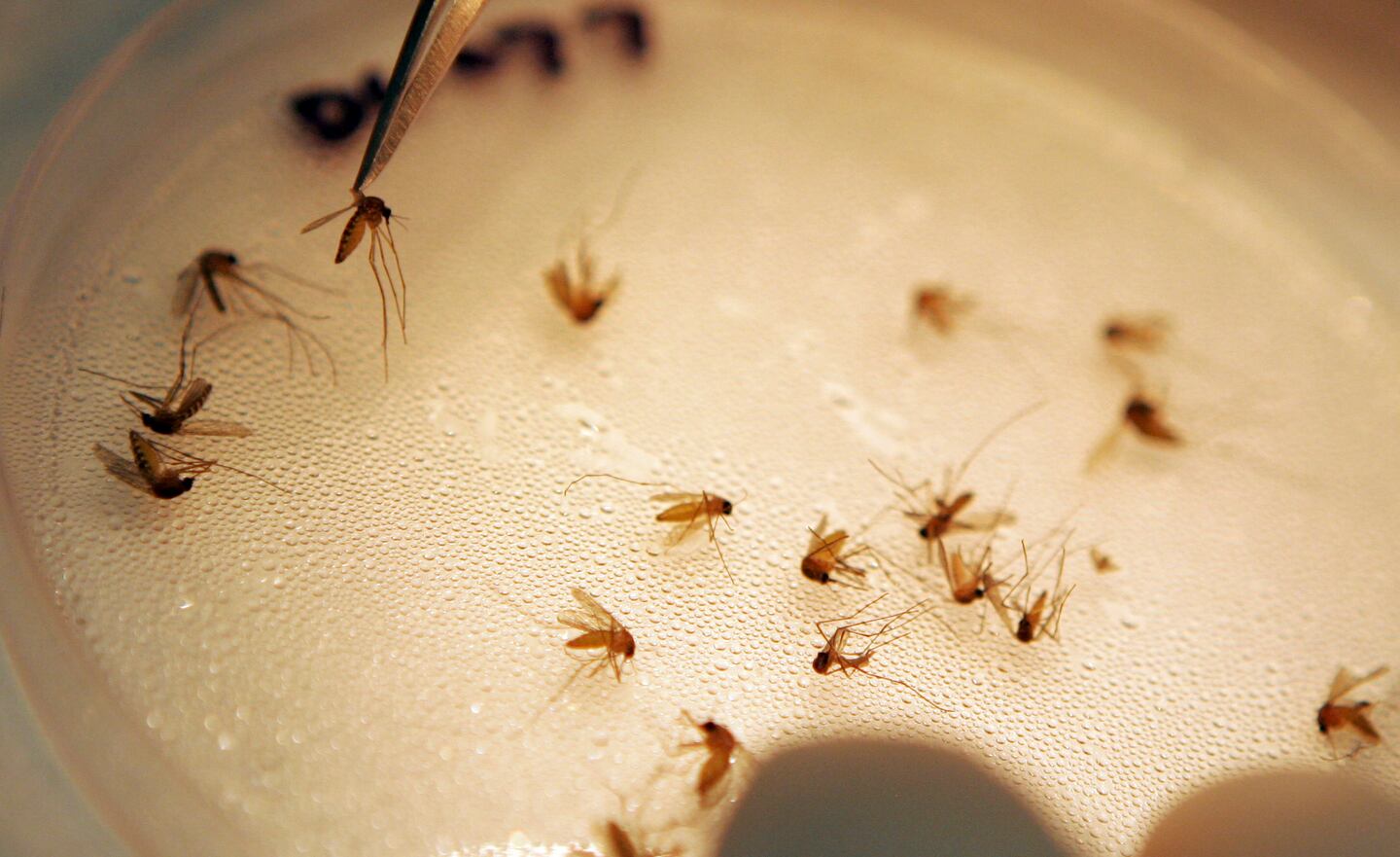BOSTON — Public health officials are warning residents after mosquito samples from two Boston neighborhoods have tested positive for West Nile Virus.
The two samples taken from Hyde Park and West Roxbury are the first to test positive for the virus in Boston this summer, Boston Public Health Commission officials said Friday.
While there are currently no confirmed human cases of West Nile Virus among Boston residents and the risk of transmission is low, public health officials urged residents to take steps to protect themselves and their families.
The virus is carried by mosquitoes and can be spread to humans through the bite of an infected mosquito.
The best way to reduce the risk of West Nile Virus is by avoiding mosquito bites.
Health officials recommended the following tips to stay safe:
• Regularly empty out and clean bird baths, unused flowerpots, and other vessels containing standing water to prevent mosquitoes from breeding. Flip over unused kiddie pools and dispose of old tires, which are also known to collect rainwater that attracts mosquitoes for breeding.
• Regularly clean out gutters and remove any debris or blockages.
• Avoid spending extended periods of time outdoors from dusk to dawn, when mosquitoes are most active.
• Wear long clothing and high socks to keep mosquitoes away from your skin.
• Use EPA-approved insect repellents like DEET, oil of lemon eucalyptus, picaridin, or IR3535.
• Make sure screens in windows and doors fit properly and do not have any holes.
“This time of year, I encourage everyone to take steps to protect themselves against West Nile Virus and other mosquito-borne illnesses,” Dr. Bisola Ojikutu, Boston’s Public Health Commissioner, said in a statement.
“It is important to drain standing water where mosquitoes thrive, and wear insect repellent and long sleeves during outdoor activities between dusk and dawn when mosquitoes are most active,” Ojikutu said.
He said state officials are monitoring the situation and will continue to keep residents informed about the virus.
Most people who are infected with West Nile Virus do not experience any signs or symptoms of illness.
In some cases, however, people will experience a headache, fever, nausea, vomiting, diarrhea, rash, and body aches which can last for a few days or several weeks.
In most cases, individuals with mild symptoms recover on their own without needing medical assistance, experts say.
People who are older than 50 are at higher risk of developing serious symptoms, including high fever, severe headache, confusion, lack of coordination, and muscle paralysis or weakness.
If you or someone you know is experiencing these symptoms, health officials urge you to contact a health care provider immediately.
More information on WNV and other mosquito-borne illnesses is available on the city’s website.
This is a developing story. Check back for updates as more information becomes available.
Download the FREE Boston 25 News app for breaking news alerts.
Follow Boston 25 News on Facebook and Twitter. | Watch Boston 25 News NOW
©2025 Cox Media Group







